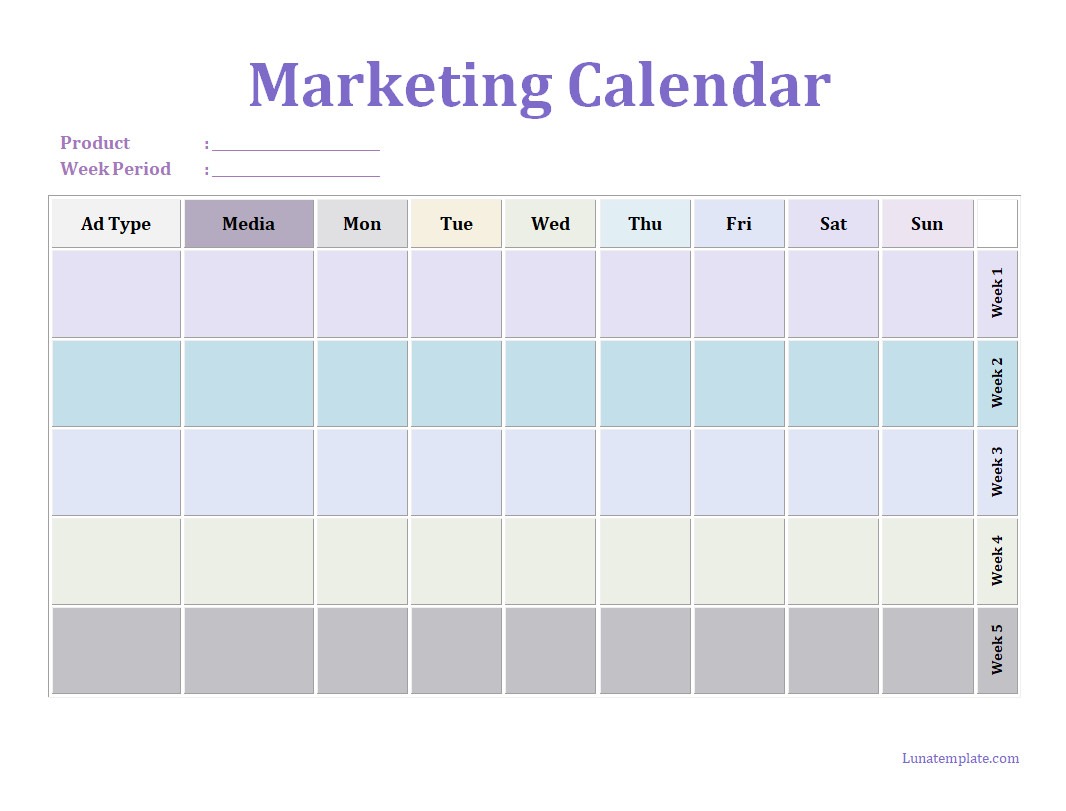As a business owner or marketer, staying organized and planning is crucial for success. This is where a marketing calendar comes in handy. With a marketing calendar, you can create and keep track of the content you plan to publish and on which dates ahead of time.
In this article, we will explore what a marketing calendar is, why all businesses need one, different types of marketing calendars, the top elements to include in a marketing calendar, how to create one, and essential marketing tips for any business.
What is a Marketing Calendar?
A marketing calendar is a tool that helps businesses plan and organize their marketing activities. It provides a visual representation of the content and campaigns that will be executed over a specific time, typically a year.
With a marketing calendar, businesses can strategically plan their marketing efforts, ensure consistent messaging, and track the success of their campaigns.

Why All Businesses Need a Marketing Calendar?
Having a marketing calendar is essential for businesses of all sizes and industries. Here are a few reasons why:
- Organization: A marketing calendar helps you stay organized by providing a clear roadmap of your marketing activities.
- Consistency: By planning, you can ensure consistent messaging and branding across all your marketing channels.
- Efficiency: With a marketing calendar, you can streamline your marketing processes and eliminate last-minute scrambling.
- Accountability: Having a visual representation of your marketing plan holds you and your team accountable for executing your strategies.
- Measurement: A marketing calendar allows you to track the success of your campaigns and make data-driven decisions for future marketing efforts.
Types of Marketing Calendars
There are several types of marketing calendars that businesses can use, depending on their needs and preferences. Here are a few common types:
- Physical Calendar: This is a traditional printed calendar that you can hang on your office wall or keep on your desk. It allows for easy visibility and quick reference.
- Electronic Calendar: An electronic marketing calendar can be created using digital tools such as Google Calendar or Microsoft Outlook. It offers the advantage of easy sharing and collaboration.
- Template Calendar: Many marketing platforms and software provide pre-designed marketing calendar templates that you can customize to fit your specific needs.
- Content Management System: Some businesses prefer using a content management system (CMS) that includes a built-in marketing calendar feature. This allows for seamless integration with other marketing activities.
Top Elements To Include In A Marketing Calendar
When creating a marketing calendar, there are certain elements that you should include to ensure its effectiveness. Here are the top elements to consider:
- Key Dates: Include important dates such as holidays, industry events, product launches, and campaign start and end dates.
- Content Topics: Plan out the topics or themes for your content to maintain relevance and consistency.
- Channels: Specify which marketing channels you will be using for each piece of content, such as social media, email marketing, or blog posts.
- Assigned Responsibilities: Assign specific team members responsible for creating, editing, and promoting each piece of content.
- Deadlines: Set deadlines for each stage of the content creation process to ensure timely execution.
- Metrics to Track: Determine the key performance indicators (KPIs) you will be measuring to evaluate the success of your campaigns.
How to Create a Marketing Calendar
Creating a marketing calendar is a straightforward process. Here are the steps to follow:
1. Determine Your Objectives
Before creating your marketing calendar, define your marketing objectives and goals. This will help you align your content and campaigns with your overall business objectives.
2. Choose Your Calendar Format
Select the type of marketing calendar that best suits your needs. Consider factors such as ease of use, accessibility, and collaboration options.
3. Identify Key Dates and Events
List down all the important dates and events relevant to your business, including holidays, industry conferences, and product launches. These will serve as anchor points for your marketing activities.
4. Plan Your Content
Brainstorm content ideas and topics that align with your objectives and target audience. Determine the frequency and format of your content, whether it’s blog posts, videos, social media posts, or email newsletters.
5. Assign Responsibilities
Delegate tasks to your team members and assign specific responsibilities to ensure a smooth workflow. Communicate deadlines and expectations to avoid any confusion.
6. Set Deadlines and Milestones
Establish deadlines for each stage of the content creation process, including ideation, creation, editing, and promotion. Break down larger projects into smaller tasks and set milestones to track progress.
7. Track and Measure Results
Regularly review and analyze the performance of your marketing campaigns. Use the metrics you identified earlier to determine the effectiveness of your strategies and make data-driven decisions for future planning.
Essential Marketing Tips for Any Business
In addition to using a marketing calendar, here are some essential marketing tips that can benefit any business:
- Know Your Target Audience: Understand your target audience’s demographics, interests, and pain points to create relevant and engaging content.
- Stay Consistent: Maintain a consistent brand voice and messaging across all your marketing channels to build trust and recognition.
- Embrace Data: Use analytics and data to track the performance of your campaigns and make informed marketing decisions.
- Experiment and Adapt: Don’t be afraid to try new strategies and tactics. Monitor the results and adapt your approach based on what works best for your business.
- Build Relationships: Focus on building strong relationships with your customers through personalized communication and excellent customer service.
- Stay Up-to-Date: Keep up with the latest industry trends and changes to ensure your marketing efforts remain relevant and effective.
By following these tips and utilizing a marketing calendar, you can effectively plan and execute your marketing campaigns, leading to improved results and business growth.
Marketing Calendar Template – Word